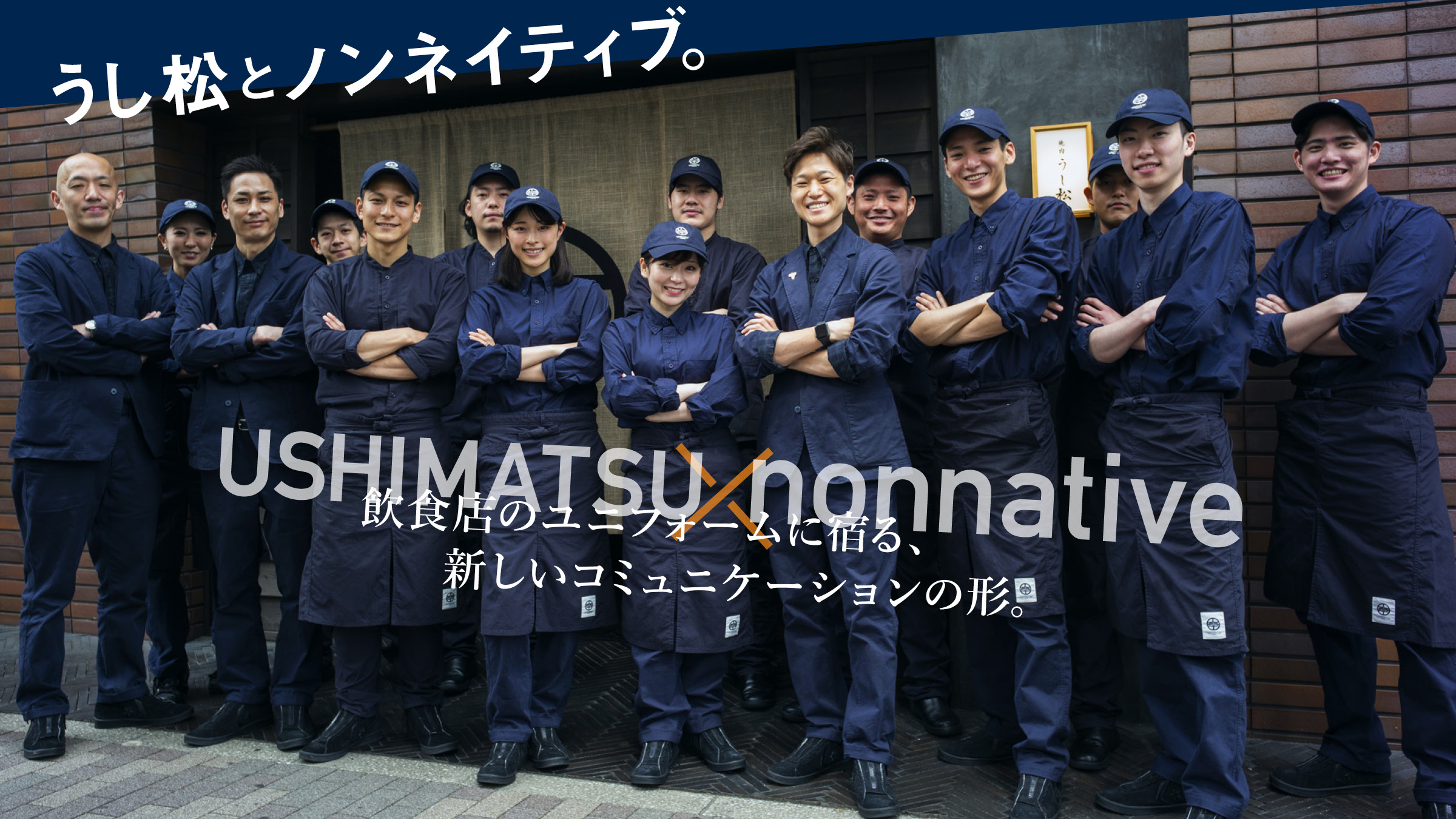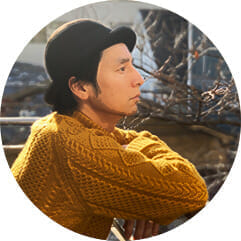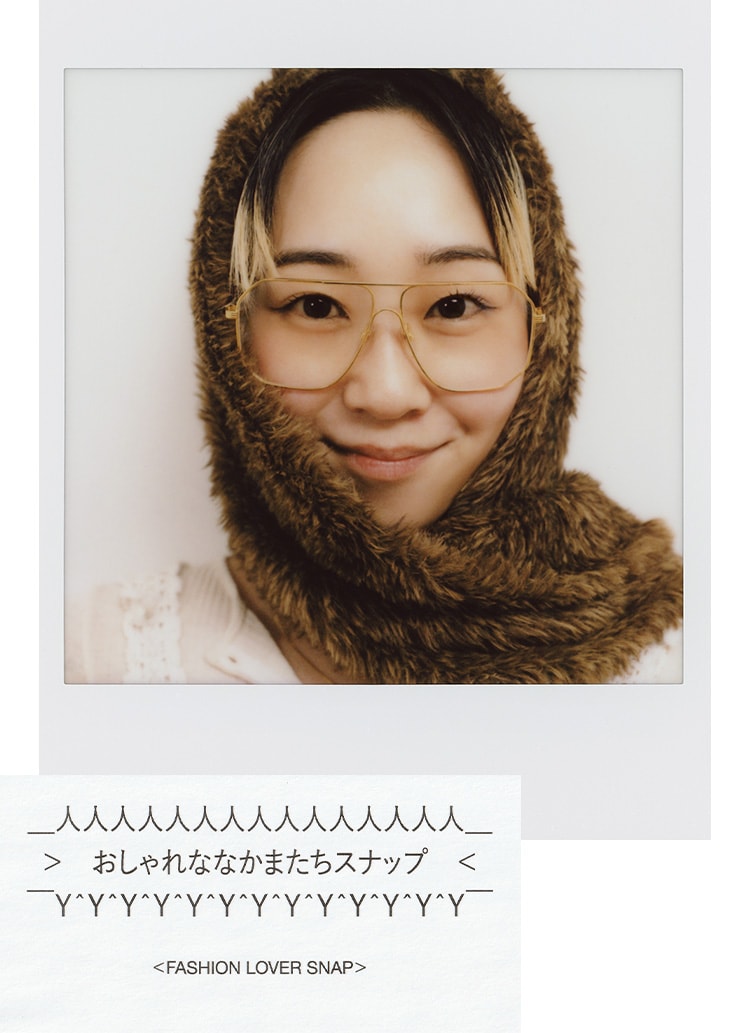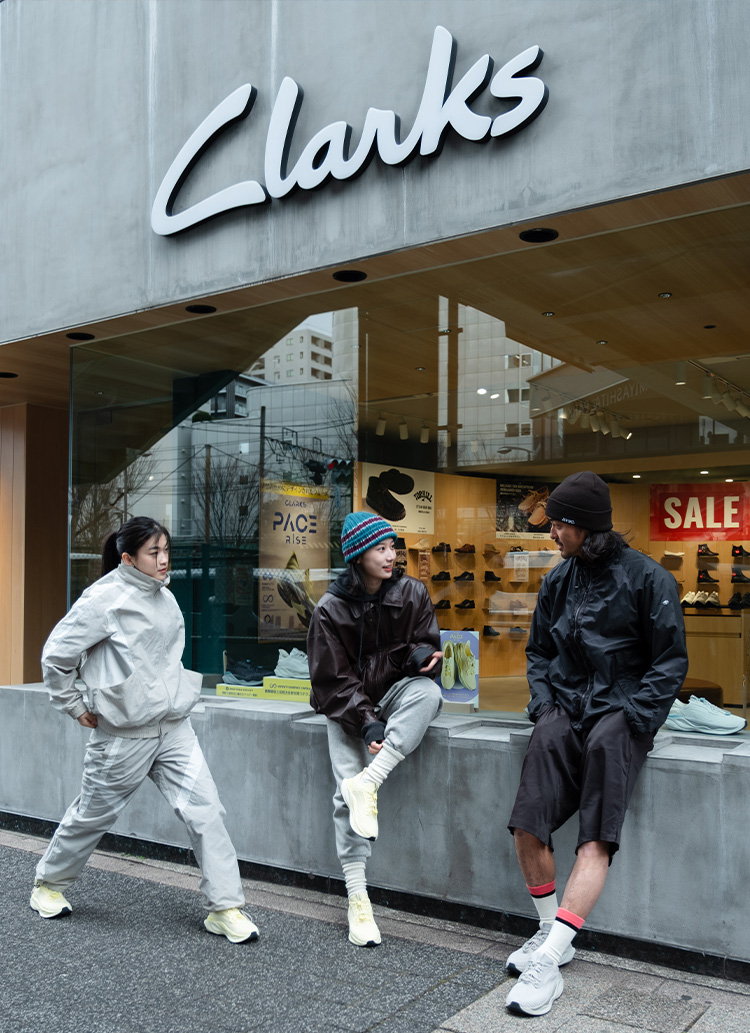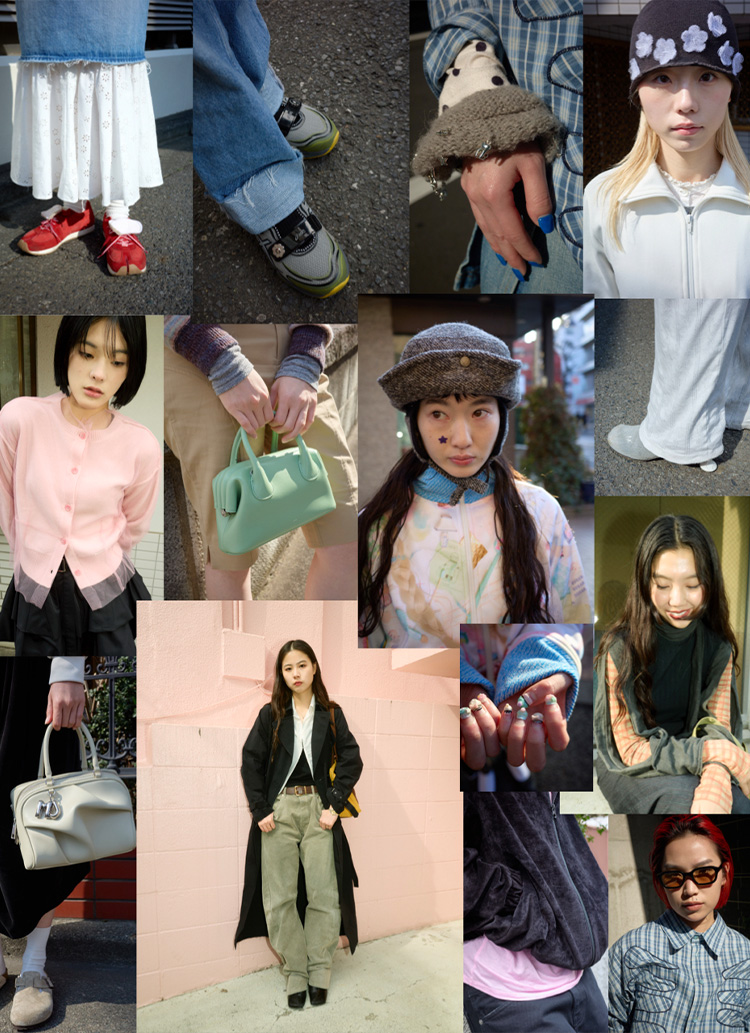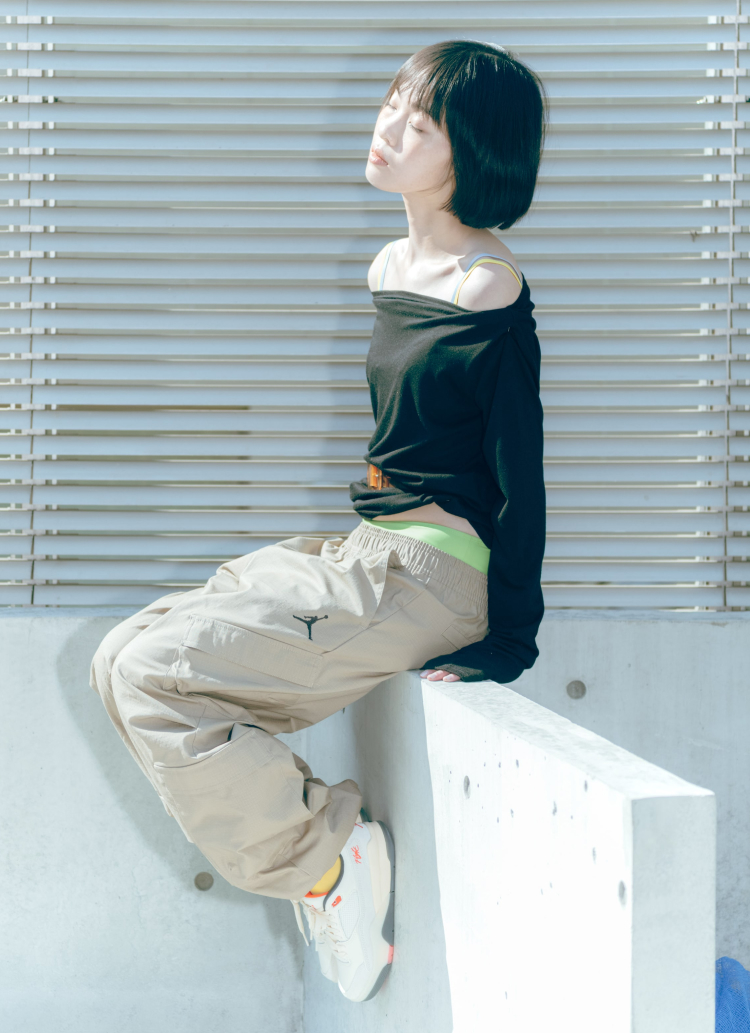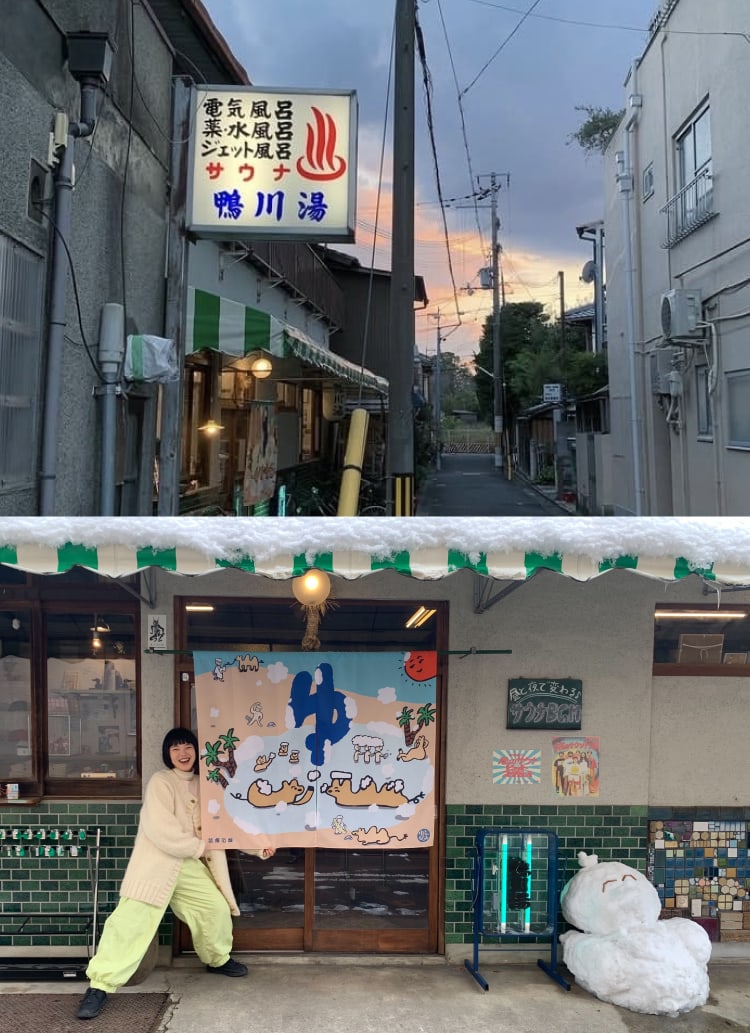The importance and potential of uniforms .
A: So how did you end up working on the store's uniforms?
Fujii: Mr. Kurita always wears "non-native" uniforms at the store, and the other staff members were dressed differently, so at first I thought he wanted to make a difference. But he didn't seem to think so, and when I asked him about it, he said he wanted everyone to wear the same uniform, so I decided to do it.

I heard that you have been working on the project for about a year.
Fujii: I didn't do anything that difficult. . I just asked them to choose what they liked from among the various dishes I made. But just like a course meal, I think it is better to make some minor adjustments as time goes by.
What kind of uniforms have you had so far, by the way?
Kurita: It was like a normal suit.
Fujii: It wasn't that it was a bad idea, but the atmosphere was very crisp. It was like a different restaurant when Mr. Kurita was baking and when the other staff were there.

Fujii: . it's not that I don't like that kind of thing. It's just that the meat is definitely good already, so I was wondering if it's okay for some of the staff to have guys in tank tops (laughs).
Kurita: As Fujii mentioned earlier, I almost always wear only "non-native" clothes when I am in the store, but I have had many customers say to me, "Your clothes look cool. That made me realize that we can reach out to people in that way, and that communication is possible.

The hall staff is wearing the "PRO-LEATHER HI," a collaboration between "Converse" and "Non-Native.
I see. So it can be a communication tool.
Kurita: Yes . At first, the staff wore business uniforms, but I was somewhat divided in that they were the store's uniforms. However, when I actually started the store, I found that there were many customers who were sensitive about the uniforms, so I thought it would be a good idea to make them the same for everyone and give them a look that other stores didn't have. . It was like I was made aware of a lot of things.

Ms. Hirakubo , how do you feel after actually wearing and working with the dress?
Hirakubo: Anyway, it's insanely easy to wear. To be honest, I was thinking that the previous professional-use one I wore as a uniform in a restaurant was better in terms of functionality. But this one is totally easier to move around in. . I'm sure the uniform I used to wear was made with more emphasis on functionality.
I see. What do you actually mean?
Hirakubo: . First of all, I like the fact that I can wash it myself. There is a common sense, or perhaps a preconceived notion, that because grease gets on restaurant clothes, they need to be sent to the cleaners. However, the uniforms can be cleaned properly, and as you use them, you get a sense that they are becoming accustomed to your body. It is also very comfortable to wear, and everyone was very excited when they received their uniforms.

Kurita: What I am glad I did was that the staff became more excited about the project. Many of the staff knew "non-native," and they thought, "I can work at a yakiniku restaurant wearing that kind of clothing, and it's better than what I usually wear.
Fujii: As I mentioned before, the ideal outfit is one that allows one to go out on the town directly after work. In fact, Mr. Kurita himself does not change his clothes in the morning, and I think that is the coolest thing to do. I think it would be great to see an American restaurant where a bearded, heavily tattooed man is cooking delicious food.
I understand. I know that such staff members often go somewhere dressed as they are after work.
Fujii: Yes, yes. Ushimatsu" is a bit more formal than such restaurants, but I think it would be interesting if a yakiniku restaurant were to go international like this. I think it would be a good fit in any country.
Kurita: We still have a long way to go, but our theme is to eventually bring true Wagyu beef to the world. Also, because of this situation, we do not have any inbound customers at the moment, but I think that if we could get them to come, our restaurant would be more enjoyable for people from overseas as well.
Fujii: I mentioned earlier about uniforms for business use, and once I did a proper research, I found that those kinds of uniforms have not evolved in the past. Just like the school run. They haven't changed at all. . But there is still a need for evolution. The way they move varies depending on the type of work, and I think the question is, "Where do you put your iPhone? I think it's like asking, "Where do you put your iPhone? I think the industry as a whole has become complacent. I think that eventually, the uniforms purchased at uniform shops should be the same as those worn at Ushimatsu.



